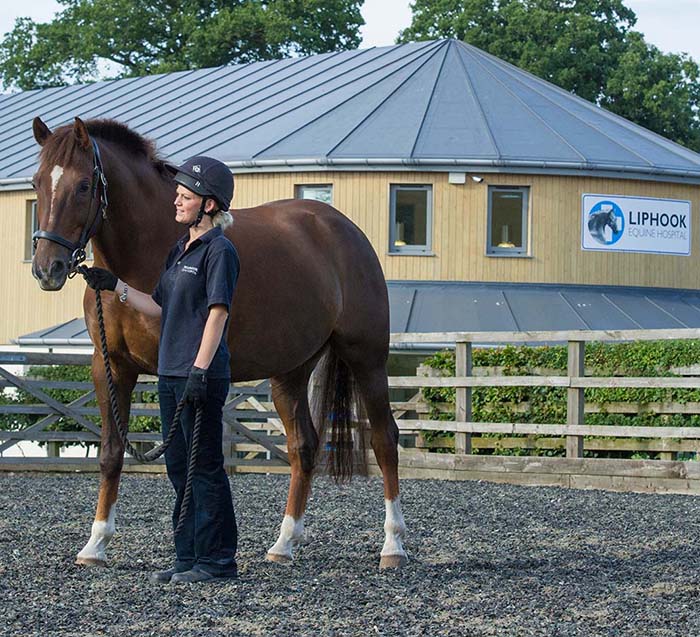On the afternoon of Wednesday 8th January, a case of Equine Herpesvirus 1 (EHV-1) was confirmed at Liphook Equine Hospital. The single horse was managed in the Hospital under isolation conditions between the evening of the 6th January and the afternoon of the 8th January, when the horse returned home. Tests from the confirmed case revealed a very low level of virus. Some other horses on the yard from which the horse came have also developed symptoms indicative of an infectious viral disease caused by EHV-1 and known as equine herpesvirus myeloencephalopathy or “neurologic EHV”. Although not common, this disease is well recognised in the UK. We must remain vigilant about the possibility of transfer to other horses staying in, or visiting, our hospital who could contribute to further spread of the virus to horses elsewhere.
EHV-1 infection is governed by a voluntary code of practice that dictates that all movement of horses should cease while investigations take place. Thus, for the time being, all movement of horses both on and off the premises has ceased and we have chosen not to accept cases at Liphook Equine Hospital other than local life-threatening emergencies. We have contacted everyone who had a horse in the practice during this period and are confident that every precaution has been taken to implement appropriate containment measures. We remain hopeful that the period of isolation will not be prolonged, but this depends on further developments and laboratory testing.
Work by our ambulatory vets on the road will continue as normal and there will be instances where our veterinary specialists may be able to attend your horse at your premises or at a local practice in order to continue to provide services including elective surgeries, lameness investigation, gastroscopy and other diagnostic procedures. We are grateful to our veterinary colleagues in local practices who are working with us in the most productive and supportive way. Emergency referral admissions will be considered on an individual risk/benefit basis.
We believe our bold actions are essential for us to deliver on our commitment to observing biosecurity measures and to ensure the welfare of our patients and the wider horse population. We very much appreciate your understanding, patience and support during this challenging period. Please do call to discuss your individual requirements and we can run through options available to you.
For what to look for in cases of EHV-1 please see below:
Early signs of EHV-1 infection in horses are often just a fever with dullness and poor appetite. Respiratory signs such as a runny nose or cough might also be seen as well as enlarged glands under the jaw. In rarer instances more serious symptoms can develop such as abortion and abnormal neurological signs. If they develop, they frequently involve weakness and wobbliness of the hindlegs and tail and difficulty passing urine or faeces, although other odd behaviours are also possible.




